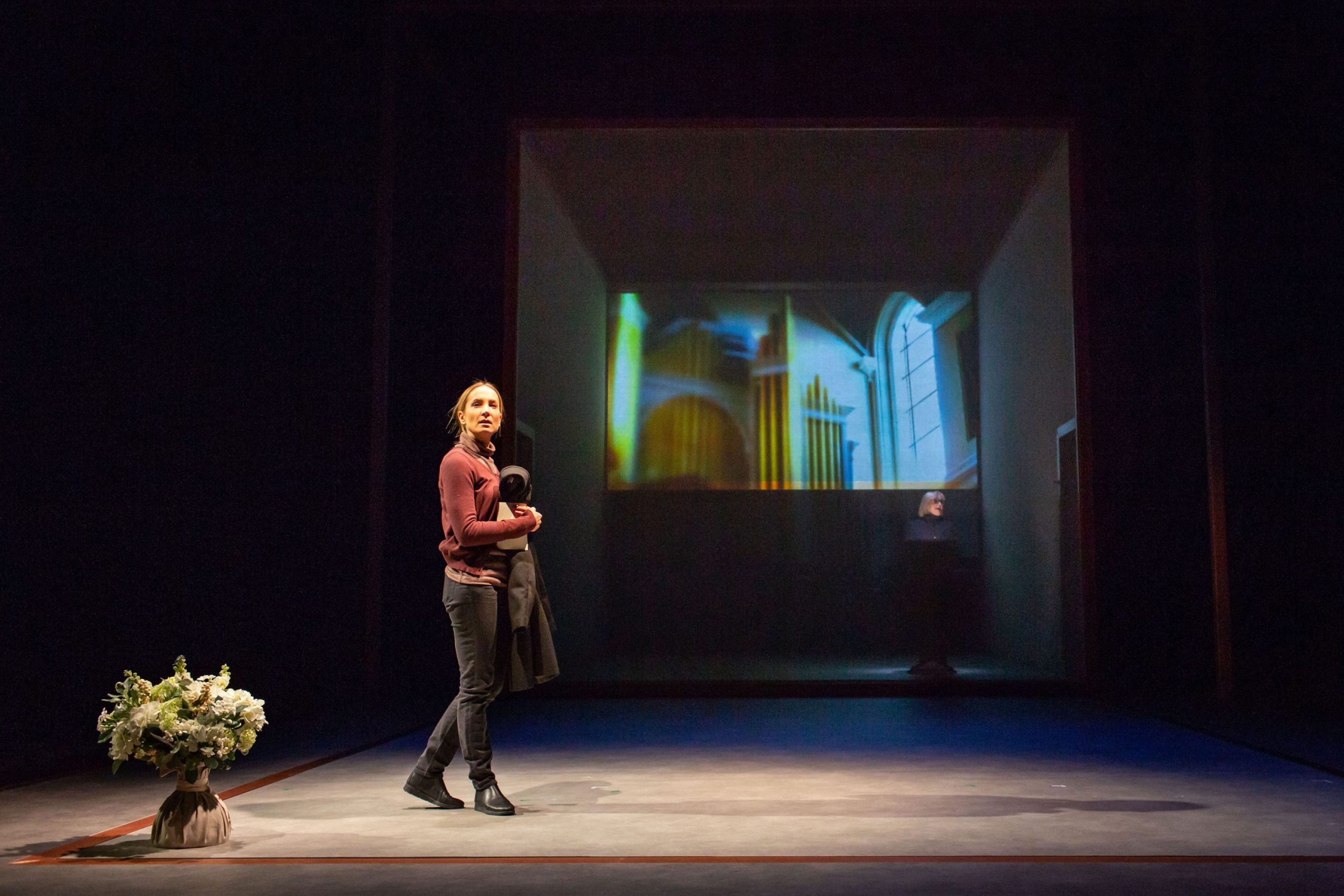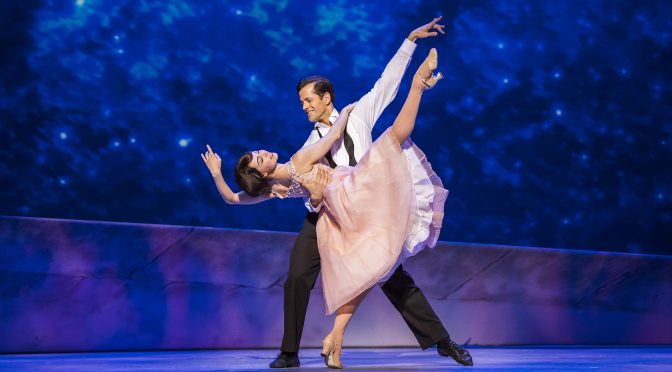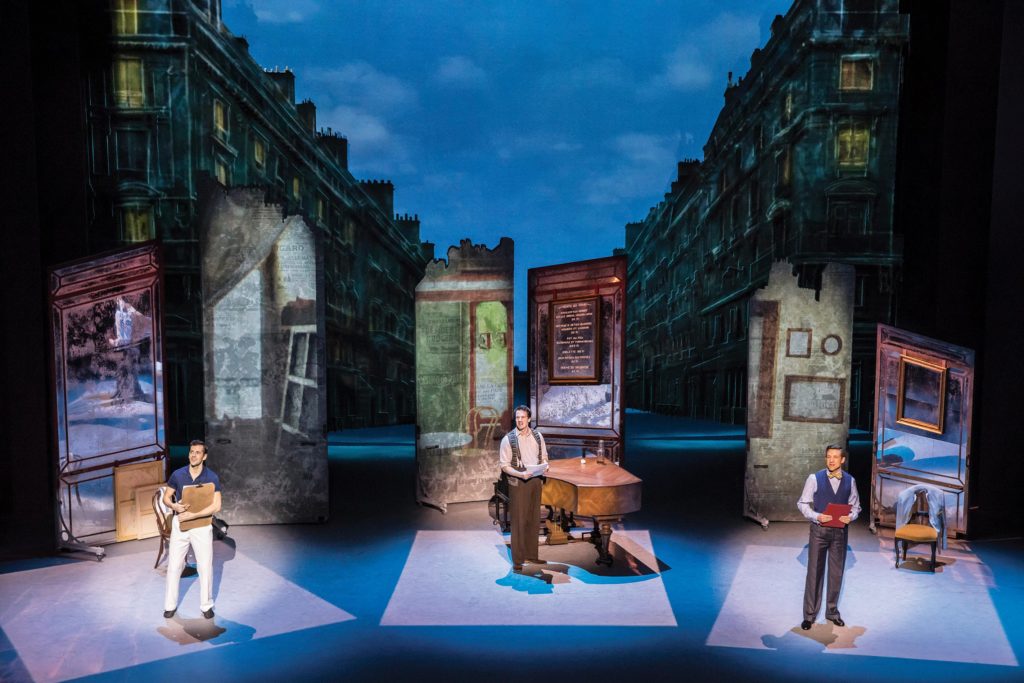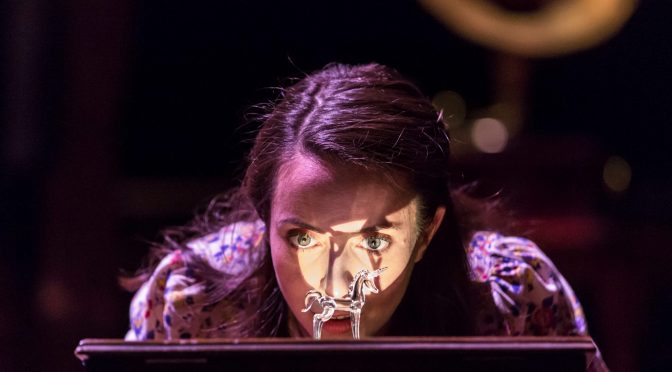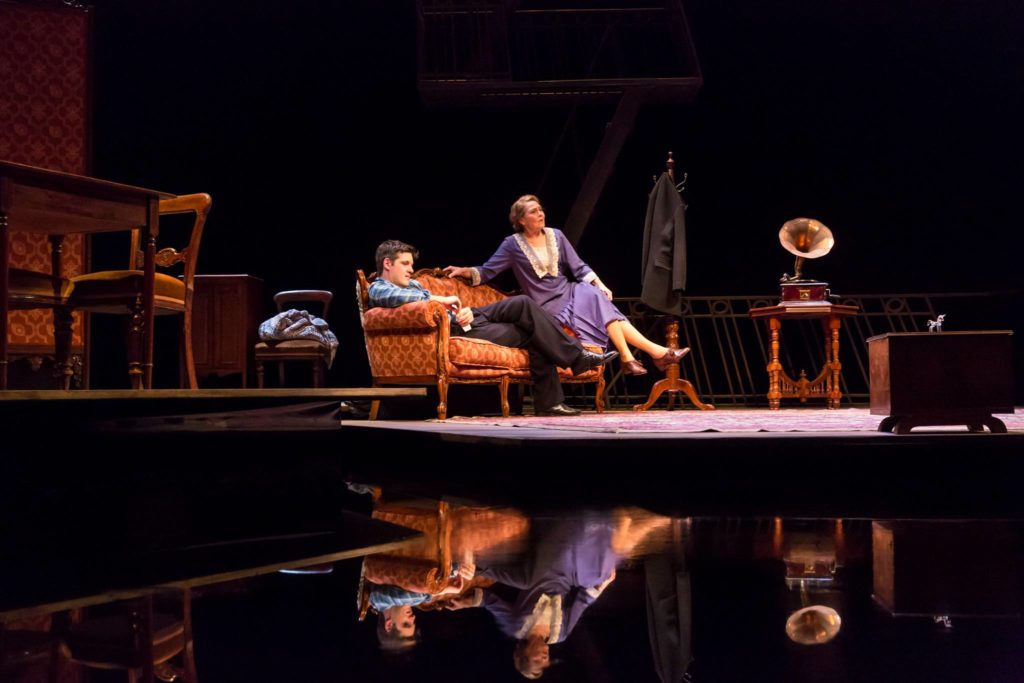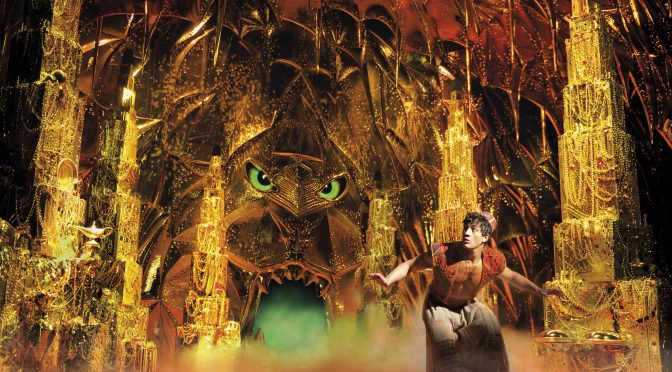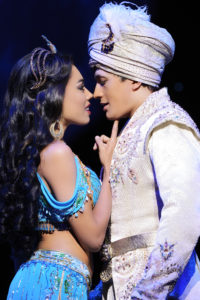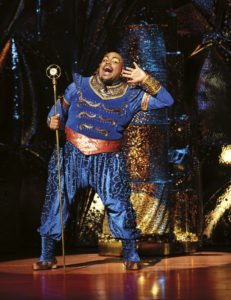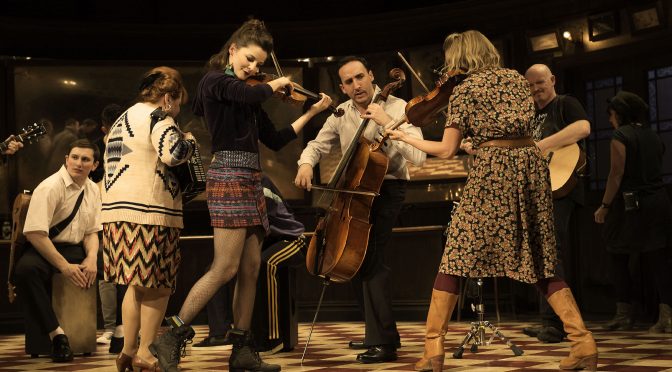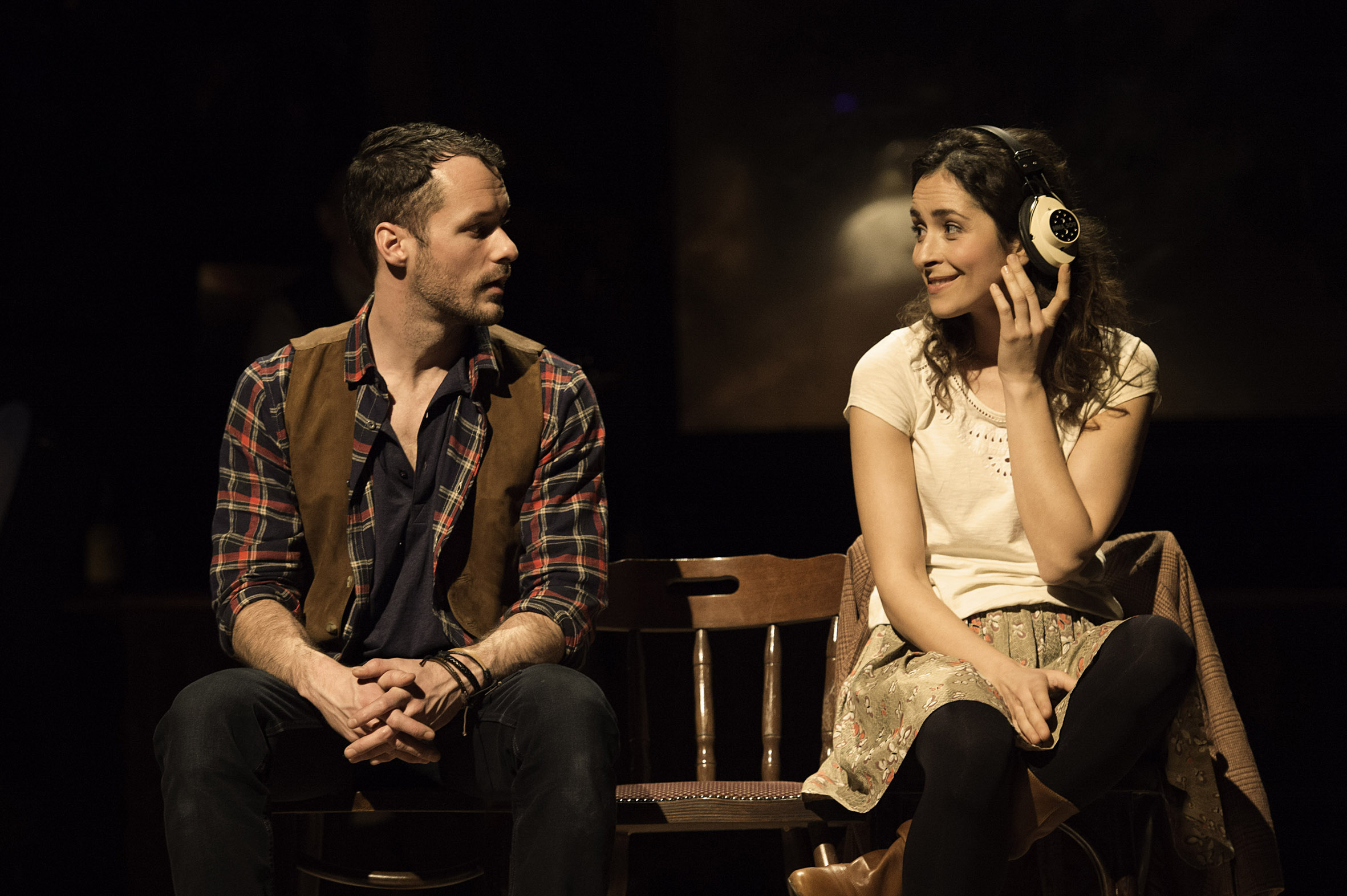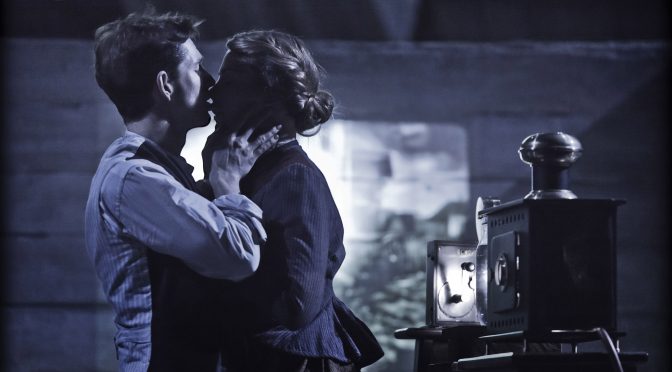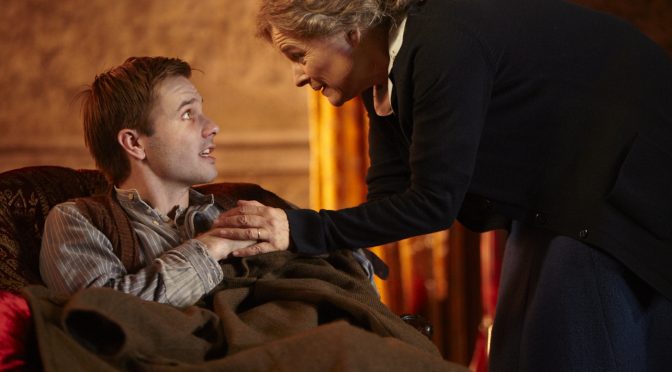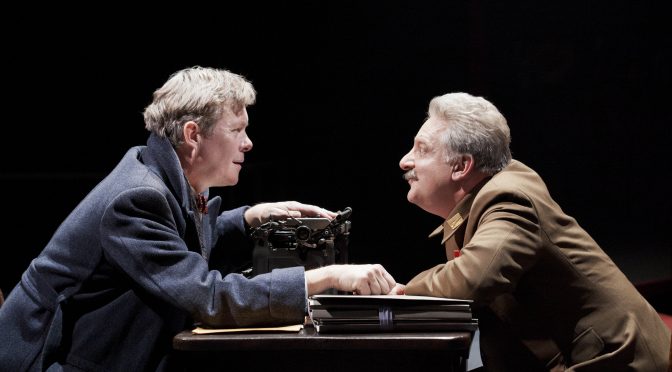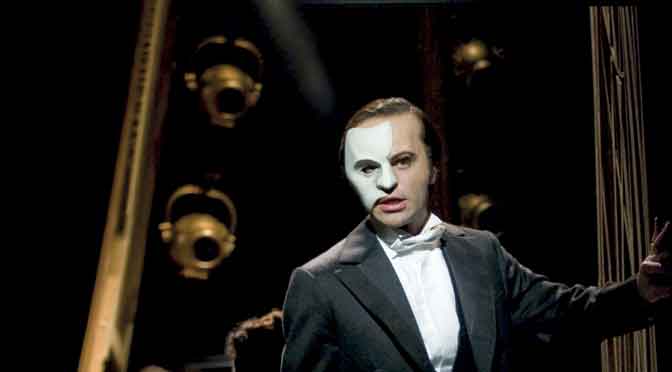Harriet Lane’s novel about an unassuming sub-editor called Frances, whose life becomes entangled with a famous author after a car accident, is a quality page turner. Bringing the story to the stage, Lucinda Coxon retains its strong plot and much of the book’s flavour: an air of Daphne du Maurier with a Ripleyesque lead make for a sturdy combination. There’s a stumble over the humour in the piece – Lane has a wry eye that Coxon has blurred – but the show is never less than entertaining.
With a strong cast, including Robert Glenister as the writer Laurence and Joanna David as his agent, there’s insight into London’s literati. But too many stabs at the middle classes become a problem in the role of Polly, Alys’ daughter. This spoilt rich girl is too broadly painted and easy to laugh at – a shame as Leah Gayer, who makes her professional debut in the part, clearly has the ability to make the character more sympathetic. Instead there’s less tension surrounding Frances manipulating the younger woman than there should be.
Even worse, too many jokes set in Frances’ workplace show the parallel plot of her blossoming career being mishandled by Coxon. In place of presenting another side to our heroine’s burgeoning ambition, we get a checklist of woes about the modern media that are both too familiar and unconvincing. Again, the gags have the detrimental effect of making many roles too slight. Frances’ editor and rival colleague Oliver see Sylvestra Le Touzel and Simon Manyonda struggling to fill out their parts.
Thankfully Alys, Always is more drama than comedy. And director Nicholas Hytner has always been good with suspense. He knows how to pace a text and place a body so that a glance between characters crackles with tension. There’s little overt confrontation, but its potential bubbles under in many scenes (Sam Woolf as Alys’ son is especially good). And there’s an impressive eye on the intricacies of class, revealing aspirations that become the catalysts for Alice’s actions. Bob Crowley’s set may be minimal but, along with Christina Cunningham’s costumes and Luke Halls’ video design, the details are precisely focused.
Frances, the unfairly ignored central figure, is key to the novel, which she narrates, and she fits comfortably on the stage thanks to a fine performance from Joanne Froggatt. Ever the underdog, sympathy is won quickly but, as this good Samaritan becomes a sinister gold digger, Froggatt still keeps us on side. From lies that might have a noble motivation, through to tasteless if harmless kleptomania for “talismans”, a combination of worry and repulsion surrounds her. The plots and emotional manipulation intrigue and excite. Even when Frances becomes ruthless, there’s the thrill that her plans might work and a quiet cheer for this special heroine.
Until 30 March 2019
Photo by Helen Maybanks

